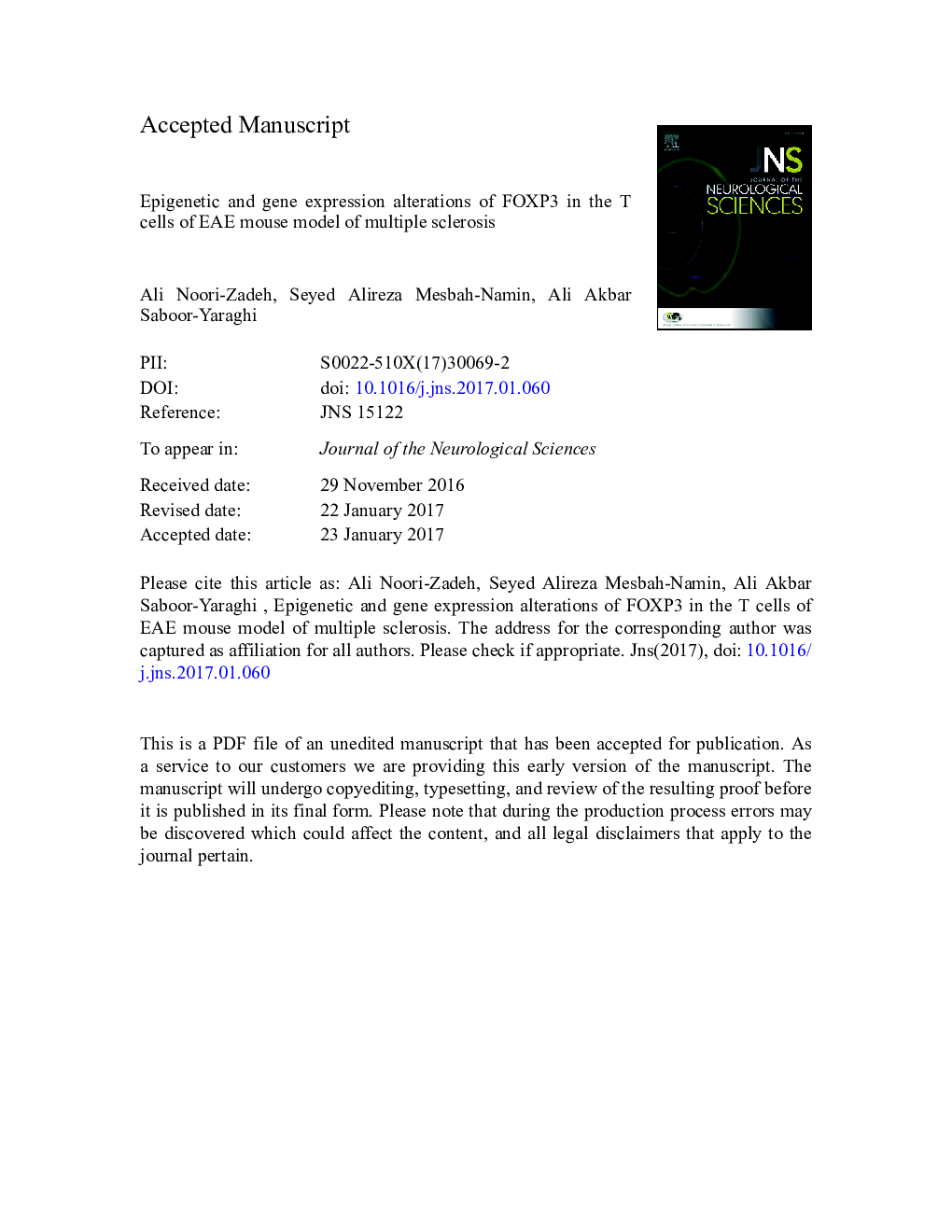| Article ID | Journal | Published Year | Pages | File Type |
|---|---|---|---|---|
| 5503201 | Journal of the Neurological Sciences | 2017 | 30 Pages |
Abstract
Multiple sclerosis (MS) is a chronic autoimmune disease with demyelination and neurodegeneration of the central nervous system. It has been shown that the regulatory T (Treg) cells are responsible for maintaining tolerance to self-antigens and can suppress the autoimmune process in several animal models such as experimental autoimmune encephalomyelitis (EAE), a mouse model of MS. Recent basic studies have demonstrated that forkhead box P (FOXP3) and BTB domain and CNC homolog 2 (BACH2) are the master transcription factors of these cells playing a pivotal role in the polarization of naïve T cells into Treg cells. In the current study, the expression of FOXP3 and BACH2 genes and FOXP3 promoter methylation were evaluated in T cells of the EAE-induced mice. The results of this study showed a prominent and significant hypermethylation of the FOXP3 gene promoter in the EAE-induced mice compared to the sham and control groups. The expression of FOXP3 and BACH2 genes was significantly decreased in the EAE group in comparison with the sham and control groups. This study suggests that the epigenetic modification of FOXP3 gene is involved in the pathogenesis of EAE and this could be important in therapy in an appropriate and logical statement.
Keywords
Related Topics
Life Sciences
Biochemistry, Genetics and Molecular Biology
Ageing
Authors
Ali Noori-Zadeh, Seyed Alireza Mesbah-Namin, Ali Akbar Saboor-Yaraghi,
